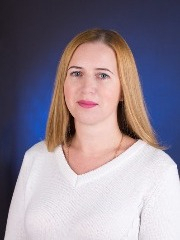Computer modeling of technical systems; theory, methods of designing technical systems; fuzzy and robust control methods; intelligent management and decision support systems.
The increment of predictive analysis methods for forecasting the state of technical objects.
-
Control system modeling
Directions for undergraduate studies 15.03.04, 27.03.04. The purpose of mastering the discipline: the study by students of methods of mathematical modeling of complex dynamic objects and control systems, types of mathematical models of objects and control processes, methods of constructing and studying mathematical models for optimization and control of technical objects, including using modern fuzzy logic methods.
-
Designing management tools and systems
Directions for undergraduate studies 15.03.04, 27.03.04. The purpose of mastering the discipline: the formation of students' skills in applying methods and means of computer-aided design of technical systems and controls using software, as well as studying the features of the development of engineering projects in various areas of engineering and technology, the fundamentals of the economic evaluation of engineering projects, concepts about optimization methods and principles designing new models of equipment, concepts, functions and methods of setting, solving and analyzing problems of optimal design.
-
Introduction to Engineering
Directions for undergraduate studies 15.03.04, 17.03.01, 27.03.04. The purpose of mastering the discipline: the formation of students' ideas about the skills that specialists in the field of control systems must possess to perform professional tasks; the formation of knowledge about the many professional tasks that graduates have to solve; assistance in choosing educational paths together with curators and a tutor.
-
SCADA systems and technologies
Master's course 15.04.04, 27.04.04. The purpose of mastering the discipline: to prepare the master for the application of a set of means, methods and methods of science and technology aimed at automating existing and creating new automated and automatic technologies and industries; creation and application of algorithmic, hardware and software systems for automation, control and monitoring of technological processes and production, ensuring the release of high-quality, safe, competitive products, freeing a person from all or part of direct participation in the processes of obtaining, transforming, transmitting, using, protecting information and production management.
-
Interdisciplinary Laboratory Workshop
Master's course 15.04.04. The purpose of mastering the discipline: the formation of competencies for graduate students to participate in the development of programs of academic disciplines and courses based on the study of scientific, technical and scientific-methodical literature, as well as their own research results; formulation and modernization of individual laboratory works and workshops in the disciplines of the master's program; conducting certain types of classroom training sessions, including laboratory and practical, as well as ensuring the research work of students; the use of new educational technologies, including computer and distance learning systems.
-
Design of automation and control systems
Master's course 15.04.04, 27.04.04. The purpose of mastering the discipline: the formation of skills to develop technical specifications for the modernization and automation of existing and new production and technological processes and production, technical means and systems of automation, control, monitoring, diagnostics and testing; development and design of outline, technical and working projects of automated and automatic production for various purposes; development of the functional, logical and technical organization of automated and automatic productions, their elements, technical, algorithmic and software based on modern design methods, tools and technologies.
-
Third year project
Directions for undergraduate studies 15.03.04, 17.03.01, 27.03.04. Project goals: development of skills in the collection, analysis, synthesis and synthesis of materials within the framework of a research project task, as well as the formation of integrated practice-oriented proposals for solving common and individual problems within the framework of applied research.



